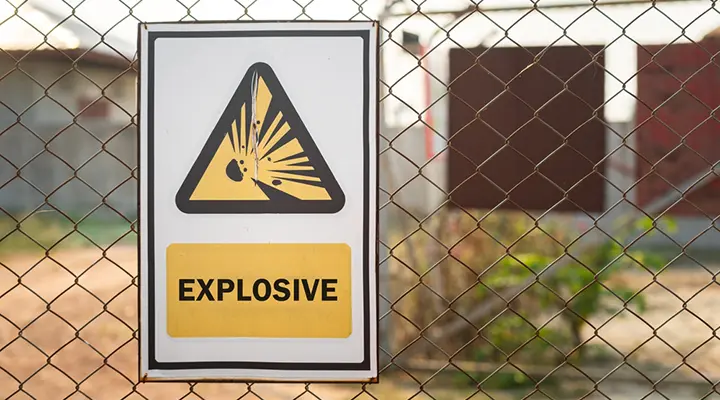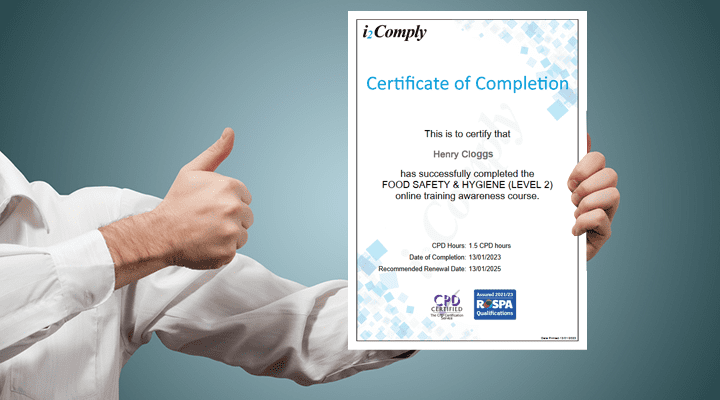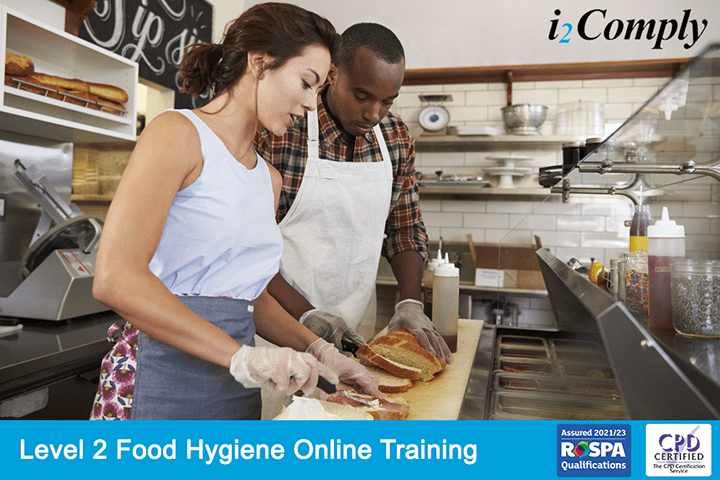Your food hygiene certificate never expires, because there is no legal requirement for you to renew your certificate. However, due to the importance of food hygiene, we recommend you refresh your training every two years.
For food businesses to ensure their staff have an up-to-date understanding of food hygiene, it is deemed best practice for them to undertake food hygiene training on a regular basis.
Why you should renew your food hygiene certificate
There’s two main reasons why it is important to renew food hygiene training.
1. Bad habits
The first reason why you should renew food hygiene training is because over time people can forget – best practices are forgotten and are replaced with bad habits. Failure to follow good food hygiene practices can lead to food poisoning. The Food Standards Agency states that there are 2.4 million cases of foodborne illness per year in the UK. An outbreak of food poisoning can have a big impact on your business. Not only do your customers get sick but this can also lead to customer complaints and negative reviews. These things can damage your reputation, reduce the footfall into your business and affect your profits.
Regular refresher training on food hygiene means your employees will continue to have a thorough knowledge and understanding of safe food preparation, cleaning and serving practices. This means they can prevent food from being contaminated, work safely and ensure that customers are served food that is safe for consumption.
2. Legislation changes
The second reason is legislation changes. These do happen frequently and, without regular food hygiene training, could mean your staff’s knowledge is out of date. For example, Natasha’s Law came into effect on 1st October 2021. This law requires food businesses to provide full ingredient lists and allergen labelling on foods that are prepared, packaged and offered for sale on the premises. The food label must contain the name of the food and a list of ingredients, emphasising allergenic ingredients in bold text, capitals or coloured text.
Therefore, regular food hygiene training keeps your staff up to date on the regulations and laws surrounding food hygiene. They are also reminded of best food hygiene practices, and how to reduce the risk of foodborne illnesses. You also have the peace of mind that your customers are being served food by trained staff.
Who needs food hygiene training?

The law requires all food handlers to have a basic understanding of the principles of food hygiene and know how to work safely when handling or preparing food.
Food hygiene level 1 – People who only handle pre-packaged low-risk foods
Typical roles includes waiters, front-of-house workers, bar staff, food delivery drivers and café staff selling pre-packed food.
Food hygiene level 2 – People who directly prepare food
This includes people working in restaurants, takeaways, cafes, bars, hotels, hospitals, prisons, schools, colleges and nurseries. It also includes childminders who prepare food for children in their care.
Food hygiene level 3 – Owners, managers and supervisors
This includes business owners, general managers or supervisors who work in school kitchens, nurseries, hospitals, prisons, colleges, not-for-profit organisations, restaurants, takeaways, food trucks, cafes, pubs, and more.
Want to renew your food hygiene certificate?
Up-to-date food hygiene training is essential for those who prepare or handle food. It is deemed best practice by environmental health officers for staff to undertake food hygiene training on a regular basis, so they maintain their knowledge and understand good food safety and hygiene practices.
We offer the following online RoSPA-assured and CPD-certified Food Hygiene courses:
1 – Food hygiene online course level 1
2 – Food hygiene online course level 2
3 – Food hygiene online course level 3
4 – Food allergen training




